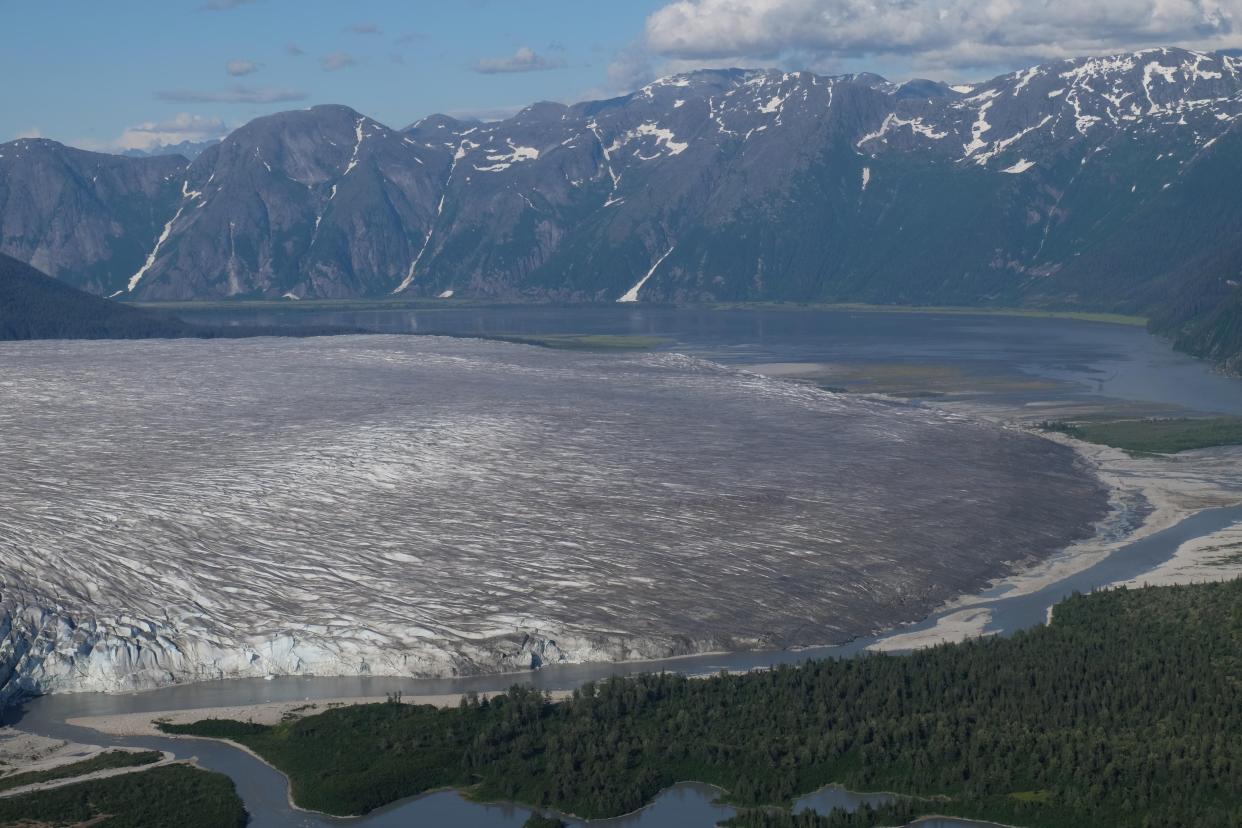Glacier melt is accelerating in Alaska, study says. Dire news for rising seas?

Climate change is taking a dramatic toll on glaciers in Alaska: Glacier melt in a major Alaskan icefield has accelerated and could reach an irreversible tipping point earlier than previously thought, a new scientific study released this week suggests.
Alaska has some of our planet’s largest icefields, and their melting is a major contributor to sea-level rise. As the ice melts, the level of the Earth's oceans rise, which will slowly put some of the world's coastal areas underwater.
"It’s incredibly worrying that our research found a rapid acceleration since the early 21st century in the rate of glacier loss across the Juneau icefield," study lead author Bethan Davies, a glaciologist in the U.K.'s Newcastle University, said in a statement.
Alaskan ice and sea-level rise
Ice loss from glaciers and icefields as a result of human-caused global warming has been shown to contribute to rising sea levels, and Alaska is expected to remain the largest regional contributor to this effect throughout the rest of this century.
The new research, published in the peer-reviewed British journal Nature Communications, found that rates of glacier area shrinkage were five times faster from 2015 to 2019 than they had been from 1948 to 1979.
Overall, the total ice loss across the Juneau icefield from 1770 to 2020 was equal to almost one-quarter of the original ice volume.

Study looked at 250 years of glacier 'behavior'
To complete the study, researchers used historical records, aerial photographs, 3D terrain maps and satellite imagery to reconstruct glacier behavior over the past 250 years.
Scientists say that if the melting trend continues, it could push glacial retreat beyond the point of recovery.
"As glacier thinning on the Juneau plateau continues and ice retreats to lower levels and warmer air, the feedback processes this sets in motion is likely to prevent future glacier regrowth, potentially pushing glaciers beyond a tipping point into irreversible recession,” Davies said.
Other locations could see same melt
The researchers believe melting also could occur in similar icefields elsewhere across Alaska and Canada, as well as Greenland, Norway and other high-Arctic locations.
“This work has shown that different processes can accelerate melt, which means that current glacier projections may be too small and underestimate glacier melt in the future," Davies said.
This article originally appeared on USA TODAY: As glaciers melt faster in Alaska, here's what's at risk

